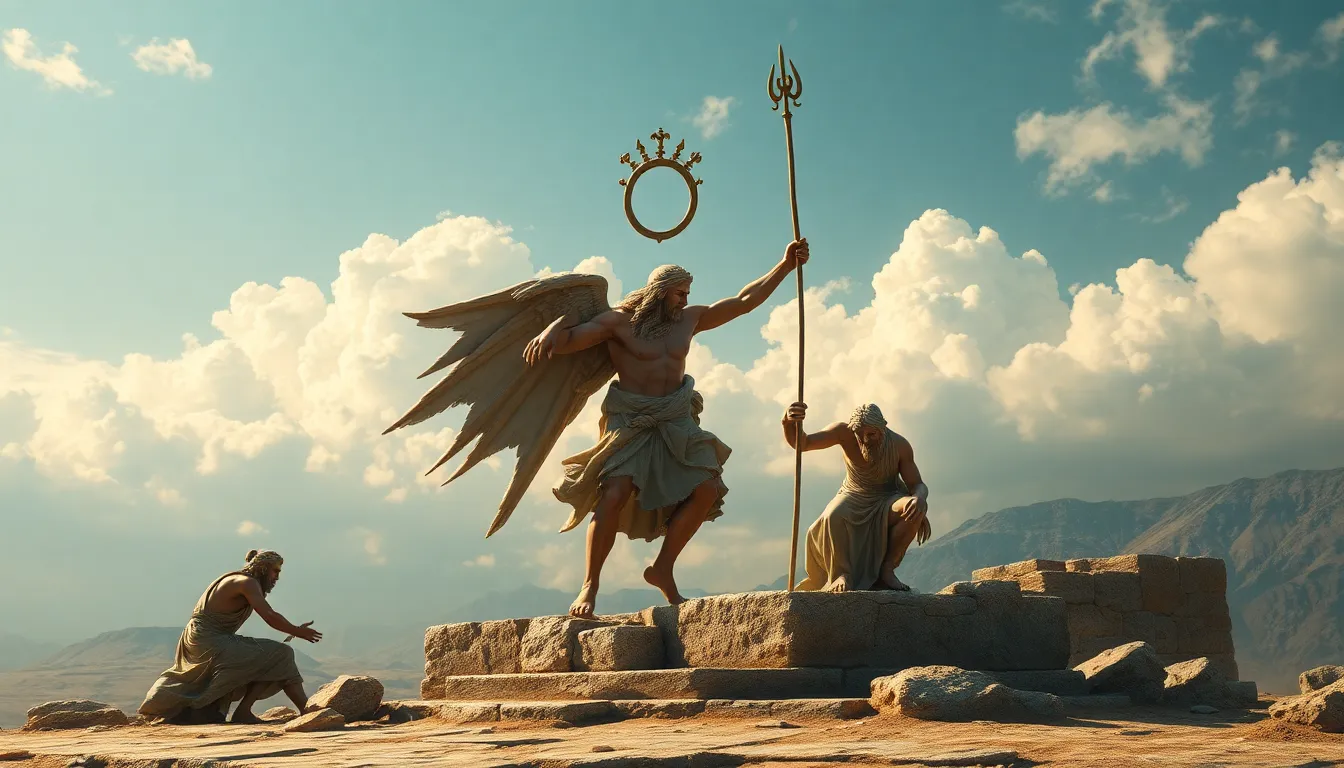The Impact of Divine Retribution on the Concept of Honor in Greek Myths
I. Introduction
Divine retribution, a vital concept in Greek mythology, refers to the punishment inflicted by the gods as a response to human misdeeds. It embodies the idea that the gods are not only powerful but also deeply concerned with justice and moral order. In ancient Greek culture, honor, or timē, was a central theme that shaped societal values and personal identities. This article aims to explore the intricate relationship between divine retribution and the concept of honor in Greek myths, revealing how these themes interact and influence each other.
II. The Concept of Honor in Ancient Greece
Honor, known as timē, was a cornerstone of Greek society, reflecting one’s social standing and moral integrity. It encompassed various aspects, including personal valor, family reputation, and civic duty. In the competitive world of ancient Greece, achieving and maintaining honor was paramount.
- Personal Identity: Honor was tied to individual actions and achievements, influencing how one was perceived by peers.
- Communal Identity: The honor of one individual could elevate or diminish the standing of their family or city-state.
Examples of honor are vividly illustrated in Greek heroic narratives, where characters often undertake quests to prove their worth and achieve glory. Heroes like Achilles and Odysseus embody the pursuit of honor, showcasing bravery and skill in battle.
III. Understanding Divine Retribution
Divine retribution, or nemesis, is the concept that the gods enact punishment for hubris, transgressions, and moral failures. It signifies the belief that the divine realm maintains balance and order in the human world.
- The Gods’ Role: The gods are seen as enforcers of justice, ensuring that mortals adhere to ethical standards.
- Historical Context: In Greek thought, divine retribution was often viewed as a necessary correction to human arrogance and wrongdoing.
IV. Case Studies of Divine Retribution in Greek Myths
Several myths exemplify the theme of divine retribution and its connection to honor:
A. The Story of Agamemnon and the Consequences of Hubris
Agamemnon, a central figure in the Trojan War, exemplifies how hubris leads to divine punishment. His decision to sacrifice his daughter Iphigenia to appease the goddess Artemis results in dire consequences, including his eventual death at the hands of his wife, Clytemnestra. This cycle of retribution highlights the importance of honoring familial bonds and the divine.
B. The Punishment of Arachne and the Theme of Pride
Arachne, a mortal weaver, boasted that her skills surpassed those of Athena, the goddess of wisdom and crafts. In response to her hubris, Athena transformed Arachne into a spider, condemning her to weave for eternity. This myth underscores the dangers of pride and the necessity of respecting the gods’ superior status.
C. The Fate of Niobe and the Consequences of Disrespecting the Divine
Niobe, who boasted of her superiority over Leto due to her numerous offspring, faced severe consequences when Leto’s children, Apollo and Artemis, avenged their mother by killing all of Niobe’s children. This tragic tale illustrates the repercussions of disrespecting the divine and the value placed on humility and reverence.
V. The Interplay Between Honor and Divine Retribution
The relationship between honor and divine retribution is complex, as they often reinforce each other within Greek mythology:
- Reinforcement of Societal Notions: Divine retribution serves as a reminder of the importance of honor within society.
- Consequences of Dishonor: Characters who fail to uphold their honor frequently face divine punishment, demonstrating the gods’ role in maintaining moral order.
Examples of characters facing divine punishment for dishonor include Pentheus, who disrespected Dionysus and was subsequently torn apart by his own mother, highlighting the dire consequences of defying the divine.
VI. The Role of Fate and Free Will
Greek mythology often grapples with the tension between divine will and human agency. While the gods exert significant influence over mortal lives, characters also possess the ability to make choices that reflect their values and honor:
- Tension Between Forces: Characters must navigate the expectations of the gods while striving to maintain their honor.
- Implications of Choice: The decisions made by characters can lead to divine retribution, suggesting that free will is inherently tied to the moral fabric of the universe.
VII. Comparative Analysis with Other Cultures
When examining divine retribution and honor in other mythologies, similarities and differences emerge:
- Similarities: Many cultures, such as Norse and Egyptian mythologies, also feature gods who dispense justice and retribution.
- Differences: Greek mythology uniquely emphasizes the interplay between honor and the consequences of hubris, with a more pronounced focus on individual moral failings.
This distinctive aspect helps shape the Greek understanding of justice and the moral order, influencing subsequent philosophical thought.
VIII. Conclusion
In summary, the relationship between divine retribution and honor in Greek mythology reveals a rich tapestry of moral lessons and cultural values. The stories of Agamemnon, Arachne, and Niobe illustrate the consequences of hubris and the importance of respecting the divine. These themes continue to resonate today, prompting reflection on morality and justice in contemporary society.
The legacy of divine retribution and honor in Greek mythology endures, reminding us of the timeless struggle between human agency and the moral imperatives imposed by higher powers.




